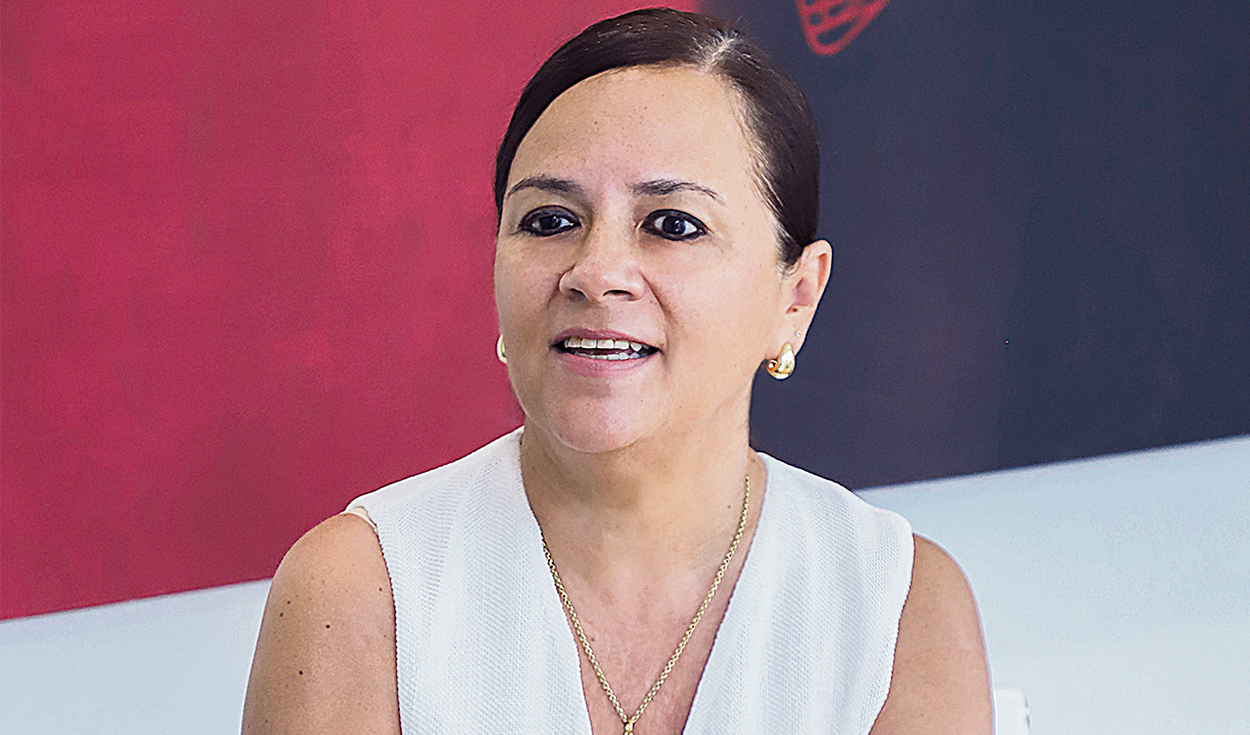
Among all the great unions in our country, Rosa Bueno de Lercari is the only female president. On her day, the head of the Lima Chamber of Commerce (CCL) is confident that protecting girls and workers from harassment, training them and making their successes visible will contribute to reducing the gaps in the Peruvian business fabric.
—Being a woman and meeting your goals in the middle of a recession?
— It is not an easy situation for the economy and, obviously, it is not easy for women either. We cannot fail to recognize progress in the participation of women in the different business sectors, but there is still a lot of work to do in terms of equity and growth, a greater effort by the companies themselves.
—There is a structural lag.
It is a bit complex, it comes from women’s own reality and even more so in a country like Peru, where they do not have safe environments at home and, in many cases, not at work. So, we have a situation that puts them at a disadvantage and that is one of the first problems to address.
—What is the agenda?
—The first issue is about safety and harassment, which causes women who have capabilities to fall by the wayside. The other issue is that of the woman who has to balance her family life with her professional life.
—According to CCL, only 27% of companies in Peru have a woman in management positions.
—In some of the sectors with the greatest contribution to GDP, such as energy, mining and fishing, the presence of women continues to lag behind. Also the percentage in its senior management is lower not only in Peru, but in the world. However, reality shows that female participation in management positions is very important, and there are figures that support this.
-For example?
—Business boards with 30% female participation are more active and independent boards, which generates a different dynamic, as they achieve better performance in at least three financial indicators: return on equity (53%), return on sales (42%), and return on invested capital (76%).
—Having children influences.
—Women who leave their jobs to have children do not return and their careers are affected. Meanwhile, men who are fathers are not affected in the least. Worldwide, where there are advanced laws, there are longer postnatal rest periods and many men do not take them because they feel their goals are delayed. It is structural, but it starts with women understanding each other with sisterhood.
—Would equalizing rest in Peru reduce that gap?
—Personally, I think it would be progress. In Europe these breaks are already given, even if they are not taken. But I think that in Peru it is a tool that could be very useful.
—A leadership issue.
—Having women in high corporate positions is strategically relevant for innovation and decision-making. It is linked to the characteristics of more disruptive female leadership. It is not supporting women to be more present in the economic life of the country for reasons of social justice, but rather economic returns. The numbers show that their presence contributes to the growth of companies.
—But that’s about women with a certain level of preparation. And the others?
—The most important programs for women are those of safety and preparation. It is an awareness. In a family, when there is some money to invest in the education of children, the male will probably receive the prerogative. You can continue working with social assistance aimed at training women. There are programs that can be taken—at CCL we have some—for women entrepreneurs who are starting their SMEs. It is so important that these types of opportunities arrive because sometimes they are so involved in their survival that they are not able to know their potential.
—It’s about making visible.
—Making success visible is a responsibility of businesswomen who have the possibility of applying equity policies in companies. Not only give directives, but measure indicators. And to women in general I would say bet on yourself, believe in what you can do and, in terms of the Government and companies, work in safe environments for women and girls, because that is the first step.
Source: Larepublica
Alia is a professional author and journalist, working at 247 news agency. She writes on various topics from economy news to general interest pieces, providing readers with relevant and informative content. With years of experience, she brings a unique perspective and in-depth analysis to her work.












